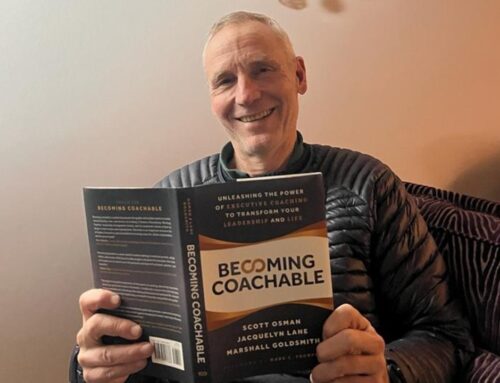Here’s to the scientists, the elite failure practitioners who continue to push the limits of science, persevering through the typical 70% failure rate in scientific discovery. Harvard Business School Professor Amy Edmondson has been studying failure for over 3 decades. Her study of failure advanced a global understanding of psychological safety. Before you dismiss that failure is not often a force for good, I invite you to envision failure as a polarity, like inhaling and exhaling.
Polarities are very different than problems. Sadly problems and polarities are often confused; I know I was guilty of this error for many years. What is the difference between a problem and a polarity? A problem has a beginning and an end. A problem can often be solved with “either/or” thinking. Polarities, on the other hand, last forever. And navigating polaritiesrequires “both::and” thinking.
In her new book The Right Kind of Wrong, Edmondson decodes and clarifies the polarity between different categories of failure. We all know failure in routine, known tasks can lead to tragedy. Fascinating is the positive role failure plays in scientific discovery as an engine for innovation and human progress. And fascinating is how much more we can each do to reduce the bad kind of failures with increased awareness of self, situations, and systems.
With over 50 examples of the most wonderful and some of the most horrific failures in history, Edmondson again develops clear frameworks that every successful leader can immediately apply to improve business performance and collaboration.
A few highlights shared in the spirit of advancing the science of failure and perhaps piquing your curiosity. I invite you to join me as I discover even more about the value of good failures as well as how the world has never before needed even more awareness and prevention of bad failures.
Are you harvesting the most from your failures?
Keep a journal, as to the most serious musicians do for both practice and performances. Or as Rene Redzepi did as he created Noma, rated the world’s best restaurant in Copenhagen.
Why do doctors in the USA have what looks like a piece of Swiss cheese on their desks and how has this already contributed to saving thousands of patient lives?
What if your organization lived “blameless” reporting of errors, putting errors proactively on the table? Could your team also achieve a 40% reduction in errors? And what would this be worth?
Is psychological safety an emergent skill a group can learn? And not dependent on personality?
Are you prepared for the ever increasing complexity of our VUCA / BANI world?
The number and severity of complex failures has never been higher. Multiple examples of the complexity of our world changed forever how I view our responsibility to strengthen our muscle to learn from failure. When I tried to count the number of good and bad failures documented by the research team, I counted over 50 different examples.
The dramatic failure examples in this book, documented with over 450 footnotes, include one of the worst oil spills in history, the development of a $2.5 billion dollar medicine, the horrors of multiple Boeing 737 MAX plane crashes, and the tragic collapse of several large buildings.
Thank you Amy and team for opening my eyes to the value of becoming an even better failure evangelist. And for helping me even better think like a scientist, learning healthy new ways to think about and reframe failure.
Bill Zeeb and the infinitas team help successful leaders and teams to be recognized and acknowledged by their coworkers as measurably more effective in 12 months or less. Guaranteed. Bill’s passion is to find and share a better way to leadership growth leveraging the scientific method and a highly structured and highly time efficient process proven with hundreds of CEO’s. A US citizen, who has lived and worked in Europe since 1990, Bill loves skiing 100+ days in one season, competing in extreme triathlons (first ever podium Alpes d’Huez 2019) and working with leaders who are ready to do the hard work to achieve extreme leadership and business growth, to better serve their teams and become better ancestors.


